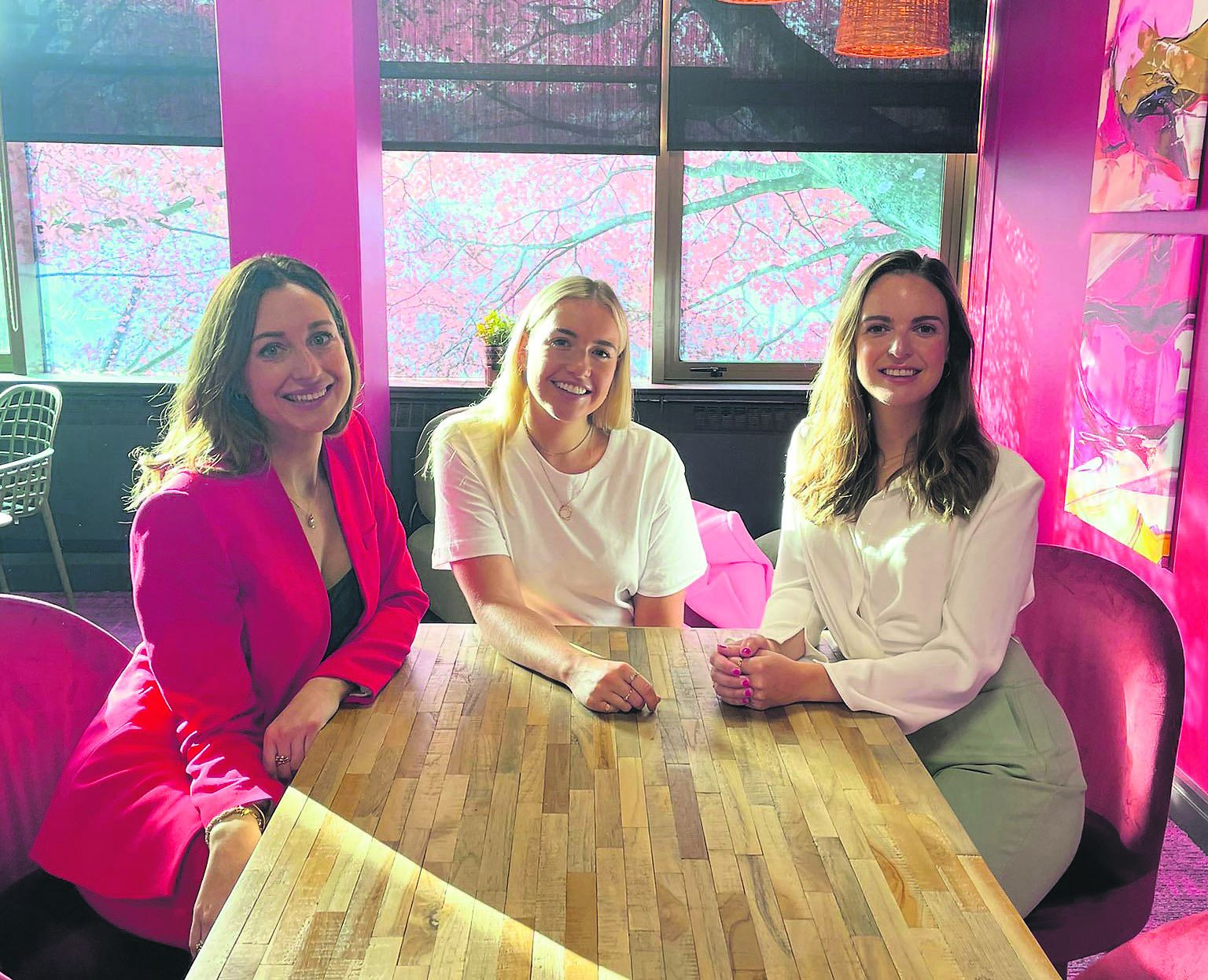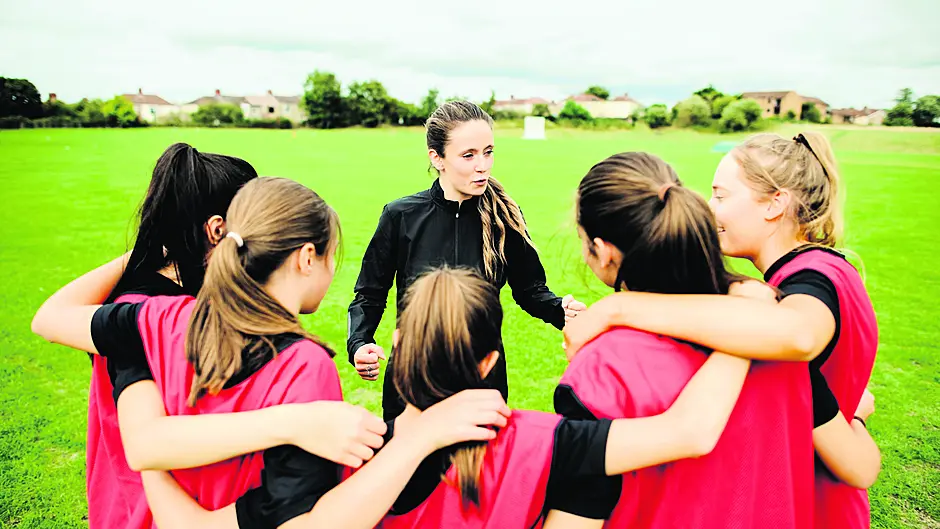BY the age of 14, twice as many girls have dropped out of sport as boys.
By the age of 20, half of girls have dropped out of sport. As more and more research shows the correlation between participation in sport and self-esteem, future achievement, physical, mental, and social health, it is becoming increasingly clear that it is crucial these numbers must change.
With that in mind, Her Sport, and Riley, the Schull-founded period care brand, have announced that they are partnering to provide 10 workshops to schools around the country, free of charge, with the goal of empowering the students to begin or remain in sport.
The positive effects of sport, especially for girls, can hardly be overstated.
Aside from the well-known physical and mental health benefits, a clear correlation with academic achievement has been shown.
Sport also helps build the critical social and leadership skills necessary for high achievement in many careers: an EY study found that 94% of women in executive managerial positions have a background in sport.
Thanks to Riley’s support, Her Sport will lead the workshops in schools around the country with the specific goal of breaking down the barriers for girls in sport. The workshops aim to reduce stigma surrounding menstrual cycles by providing students with information about the logistics of managing your period, how the menstrual cycle affects their bodies and athletic performance, as well as encouraging girls to share their own experiences.
Other topics include body image, how to balance education and sport, managing sport at different life stages, as well as the landscape of women’s sport in Ireland and inspirational female athletes.
To date, Her Sport workshops have received overwhelmingly positive feedback from students and educators, and have measurably changed students’ attitudes towards sport.
A total of 19% of the students don’t play sport but 77% of these said they would be interested in trying sport after the workshop. 88% of students would watch or attend a women’s sporting event —a 43% increase from before the workshop.
A total of 97% of participants felt more empowered after the workshop, and 100% would recommend other students do the workshop.
Many students reflected positively on the ‘relaxed space’ and ‘open, encouraging conversation’ in which groups discussed ‘rarely talked-of topics.’
One agreed that she would recommend the workshop ‘because females in general sometimes feel uncomfortable talking about their menstrual cycle and this workshop makes this topic more normal,’ and many more spoke of the valuable new information they had learned and the increase to their confidence.
Another common theme in student feedback was girls realising they’re not alone: one praised the workshop for ‘reducing feelings of solitude,’ and another said ‘it made me feel better and [was] a reminder that loads of girls go through it!’
Supporting women and building positivity around periods is a core value of Riley, who have partnered with charities fighting period poverty. It’s also a key component of Her Sport’s mission to achieve gender equality in sport.
Aine Kilkenny, Riley co-founder said: ‘Education is the first step in breaking down barriers around the menstrual cycle.
 Friends and Riley founders Fiona Parfrey, Áine Kilkenny and Lauren Duggan.
Friends and Riley founders Fiona Parfrey, Áine Kilkenny and Lauren Duggan.
‘We’re looking forward to building positivity on periods at a school level and continuing the mission to achieve gender equality in all areas, including sport.’ Niamh Tallon, founder of Her Sport said it was ‘no coincidence that so many girls are dropping out of sport by 14 years old.
‘At Her Sport, our goal is to start as many conversations as we can around menstrual cycle, body image and other barriers for girls in sport, so that we can reduce this dropout rate.’










